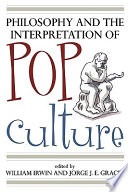Dracula (1979) visually pays homage to black and white films while dispensing with the hammy, over-the-top acting of its ancestor. This version really embraces the animalistic, supernatural elements in every shot without being dated. In one particularly stunning scene, a masculine hand emerges from wolf fur without the tacky werewolf transformation vibe to hold a woman’s hand suggesting tenderness within the savagery not usually embodied in the legend. Initially the film is promising because it shows how initially normal people would react by being startled by some of Dracula’s unusual antics (for instance, you need to clean up that castle; stop openly hypnotizing people and smashing mirrors), but in seconds, they adjust as if he is completely acting normally. Accidental slapstick! If the filmmakers could have sustained the tone of the movie, it would have been brilliant. The vamp conversion is more horrifying and less beautiful than the Hammer productions, which I welcomed as a contrast to Dracula’s peaceful cover. There is a troubling dynamic-Lucy is cast as Dracula’s soul mate. She wants a profession, is a modern nineteenth-century woman and enjoys sex. She clearly chooses Dracula, who wants complete transformation and obedience. Are her earlier characteristics being cast as a sign of her deviant behavior? I’m not sure if I’m happy with that implication.





